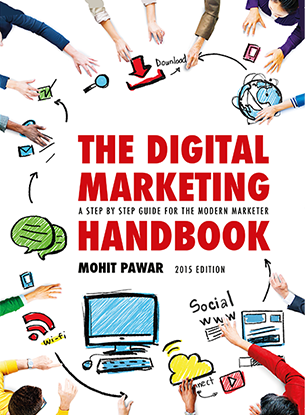
Do you have a go-to person?
A person you think of when you need advice on a particular area?
Chances are you do if you are like most of us.
This go-to person may not be the biggest expert on the topic you care about, but she definitely knows more than most.
The world needs such go-to people, the modern curators, more than ever. This is happening thanks to two big trends. Information overload and a time-poor society.
There is so much information available that people are drowning in it. They are overwhelmed. There are hundreds of trillions of pages on the web. People watch 5 billion videos on YouTube every day. And, it’s increasing by the minute.
No one has the time to go through all this information. Because they are chasing their ambitions and working long hours to make ends meet.
This presents a unique opportunity. The opportunity to become an information curator, to find hidden gems, and to offer an informed opinion.
How To Become A Good Curator of Information
A curator is an important person in the art world. And like a good art curator, the information curators should have intellectual curiosity, good taste, and willingness to invest time do the necessary research.
To become a curator start with what you are curious about, and not something that is just trendy. It will be easy for you to do well if you have a genuine interest in the topic.
Aim to become Google ‘PLUS’ not the dead social network but someone who scours the web to find the best information about your chosen theme.
Be methodical and consistent. Genuinely care about the topic you choose to curate. If you don’t you won’t last. And when an opportunity comes your way, lap it. Unless you don’t like the limelight.
One of my favorite curators is Maria Popova of Brain Pickings. She has shared her disciplined approach to curation in her interviews. You can also feel her love and care for the authors, artists, and their creations when you read anything on Brain Pickings.
To become someone like Maria, think of yourself as a hybrid of a curator and professional creator. A curator who explores, goes deep, shares what she learns, after adding her own spin. No point becoming a link pusher. Add your own commentary or at least an intro before you share what you find.
Lam started Wirecutter as a personal blog where he gave buying recommendations for gadgets, in 2011. The quality of his recommendations was very good. That is why the site gained a lot of traction and generated significant revenues, enough for NYTimes to acquire it for $30 million in 2016.
Money is not the only reason to become a curator, there are other good reasons too.
Reasons and Benefits Of Becoming A Curator
Here is why you can consider becoming a curator.
# There is no entry barrier
You can start your curation journey today. Even if you don’t know anything about your chosen topic. You’ll take time to learn but you can start sharing your findings as soon as you start your learning journey. Your starting point can be listing all resources or important people related to a topic.
# You do not need a lot of time to do it
You can become a curator in as little as 15 minutes a day. Of course, if you spend more time it will help but 15 minutes are good to start.
# You can use it to keep your audience excited and engaged
Tim Ferris does it with 5-Bullet Friday, his weekly newsletter than he sends out every Friday. In it, he shares 5 bullet points. One each related to what he is reading, watching, and a quote he is pondering, and two others, one of them is often about what he is eating or drinking, and one more.
# It can help you become an expert
When you spend time learning about a field regularly, you tend to learn more than others and become an expert in the process.
# You can grow your business
Carney is a marketing agency based in Pittsburgh, Pennsylvania. They started a daily curated newsletter called The Daily Carnage. It boosted the brand and business of the agency in a big way.
# It can help your brand and bring growth opportunities your way
When you curate and share what you see and find, you choose yourself. If you work a bit on spreading the word about your findings, people come to see you as the hub for refined information. This results in an increase in the flow of opportunities.
Mason Currey was a journalist who started curating and publishing the daily routines of famous people. It turned into an opportunity for him to become an author. Knopf published his first book “Daily Rituals: How Artists Work” in 2013, and the second book “Daily Rituals: Women at Work” in 2019.
You too can become a curator and create a unique place in your chosen field. You don’t need a lot to do that except your commitment, consistency, and curiosity.
Are you up for it?


